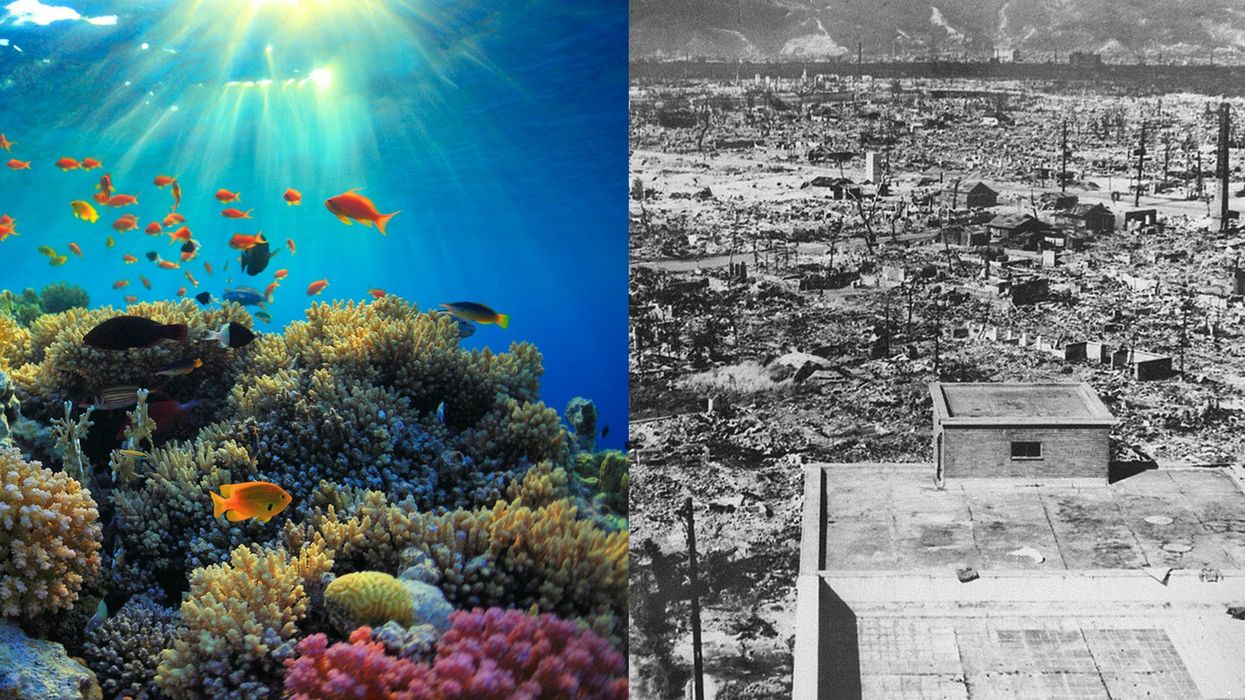News
Greg Evans
Jan 14, 2020

Picture:
iStock/Getty Images
A new study has found that in 2019 the world's oceans heated up at an alarmingly high rate, which scientists have compared to five Hiroshima bombs being detonated in the water every second.
The findings were published in the journal for Advances in Atmospheric Sciences and should make for concerning reading for anyone worried about climate change.
A team of 14 scientists from around the world examined data about the ocean's temperatures to 2,000m deep going back to the 1950s, and found that the last five years were the five hottest ever recorded.
Between 1987 and 2019 ocean warming was found to be 450 per cent greater than any previous period. And in 2019 it was 0.075 degrees Celsius hotter than it was between 1981 and 2010.
This is a concerning trend for Lijing Cheng, the lead author of the study and an associate professor at the International Centre for Climate and Environmental Sciences at the Chinese Academy of Sciences.
Cheng is quoted as saying:
There are no reasonable alternatives aside from the human emissions of heat-trapping gases to explain this heating.
The Hiroshima atom-bomb exploded with an energy of about 63,000,000,000,000 Joules.
I did a calculation ... the amount of heat we have put in the world's oceans in the past 25 years equals to 3.6 billion Hiroshima atom-bomb explosions.
Cheng adds that in order for the oceans to have warmed up by such a degree that they would had to have taken in 228 sextillion joules of heat, which is a staggering number.
This comparison to the Hiroshima bomb, which approximately killed 150,000 people when it was dropped on Japan by the United States in 1945, was also made by John Abraham, another author of the study who is a professor of mechanical engineering at the University of St. Thomas in Minnesota.
We are now at five to six Hiroshima bombs of heat each second.
He added that in order to get a better understanding of climate change and global warming then the ocean temperature is the best place to start.
Both Hurricane Harvey and Hurricane Florence were said to have been partially caused by abnormally high temperatures while some studies have found that warmer temperatures can make storms wetter and more dangerous.
This has also had an impact on marine life, as some species, such as dolphins, simply cannot keep up with how fast weather systems are changing.
Reversing this change is practically impossible, but Cheng does have some reassuring words on how to prevent the situation from getting any worse.
We will see continuous increase in ocean heat content in this century even if we can keep the global mean surface temperature (rise) well below 2 degrees Celsius (the goal of the Paris Agreement).
If we can reduce emissions, we can reduce the warming level, and then reduce the associated risks and loses.
However, Kevin Trenberth, a senior scientist in the Climate Analysis Section at the National Center for Atmospheric Research believes the onus should fall on the leaders of the planet's major countries.
The upward trend is relentless, and so we can say with confidence that most of the warming is man-made climate change.
If the leaders of the world changed course, a revolution could take place over about 15 years ... this requires the leaders of China, and the US in particular, along with Europe, to take a strong leadership role and set the stage for the rest of the world to follow.
HT CNN
More: This photo of grass on Mount Everest proves how terrifyingly real climate change is
Top 100
The Conversation (0)













